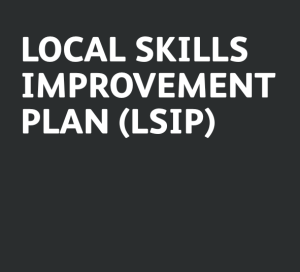In response to Chancellor Rachel Reeves’ Spring Statement, Suzanne Caldwell, Managing Director of Cumbria Chamber of Commerce, said:
It seems there was little if anything we didn’t expect in today’s Spring Statement from the Chancellor. That’s disappointing but perhaps unsurprising with so much trailed in advance.
The changes to benefits have been significantly shared prior to the Statement. It’s to be hoped that these, along with the support promised for employment support and Jobcentres, have a significant positive impact in practice in getting more people with disabilities and long term health conditions into work and into better work. And that we don’t see an unintended consequence of people having to drop out of the workforce. Not only is having more people in our active workforce better for business, it’s also better for individuals and their mental wellbeing. The changes to benefits won’t make this happen on their own and that’s why the support elements are vital – as is support to employers for any additional costs and changes.
And there’s a concern there that these changes sit alongside the significant increases in Employers’ National Insurance Contributions and the National Minimum Wage, as well as forthcoming changes to employment rights. All of these act against employers taking on more staff, and in particular discourage employers from taking a chance on those with more challenges.
It’s worth remembering too the results of our post-Budget survey, backed up by national surveys:
- Businesses voiced strong concerns about the planned increase in Employers’ National Insurance (NI), with 60% expecting it to limit recruitment and 61% expecting to have to increase prices to offset the increase labour costs. 57% of businesses surveyed also expected to reduce future wage settlements, while nearly half (49%) expected to reduce investment in growth.
- Unease among businesses over the changes to National Minimum Wage (NMW). Over half (51%) expected higher wage costs for staff paid at the NMW level and 57% predicted increased costs for workers earning above this threshold. These wage pressures were expected to lead to reduced investment in growth for 50% of respondents and limited recruitment for 49%. Additionally, 50% of businesses anticipated passing on higher costs to customers through price increases. 12% of respondents were expecting to have to make redundancies.
Given these increases only kick in from April we have yet to see the true impact of these changes.
Similarly, while it’s a huge positive and much needed, the massive investment planned for Barrow is not new, it’s something we’ve known about for some time now. As are planning reforms.
While the spending and plans around defence, again much trailed, should directly and indirectly benefit businesses, there’s also a concern that such focus on defence could have a detrimental impact on other sectors.
There was very positive talk about growth but given the challenges facing business it’s to be hoped sincerely that these come to fruition.
As the Chamber we’ll certainly be continuing to work with businesses to help them address the challenges and take advantages of opportunities, and as part of this continue our push as a Disability Confident Leader to help get more people with disabilities into rewarding opportunities.






